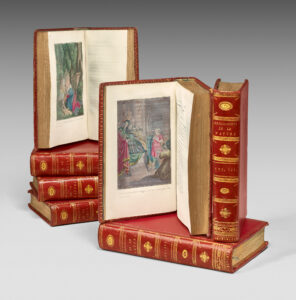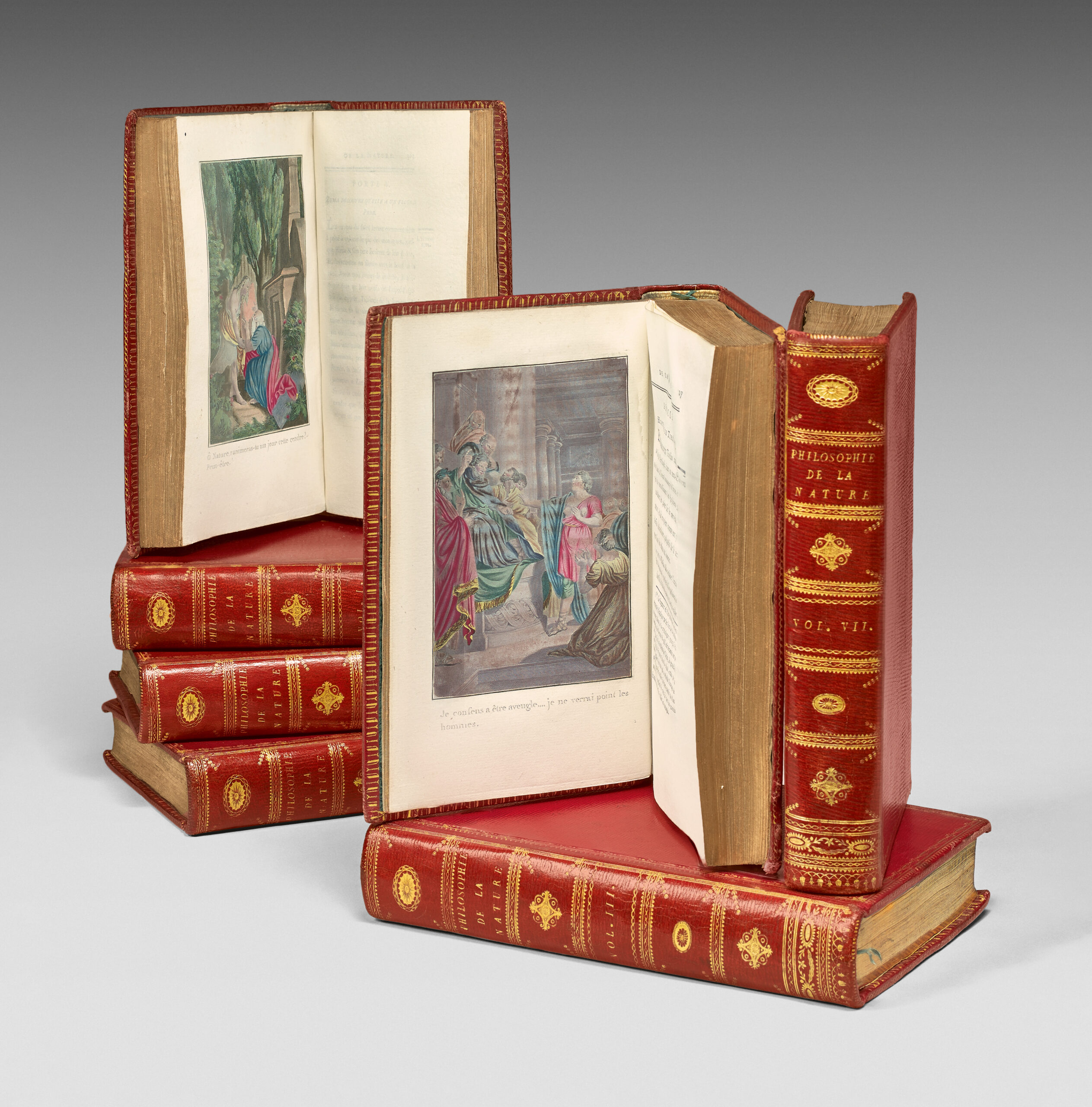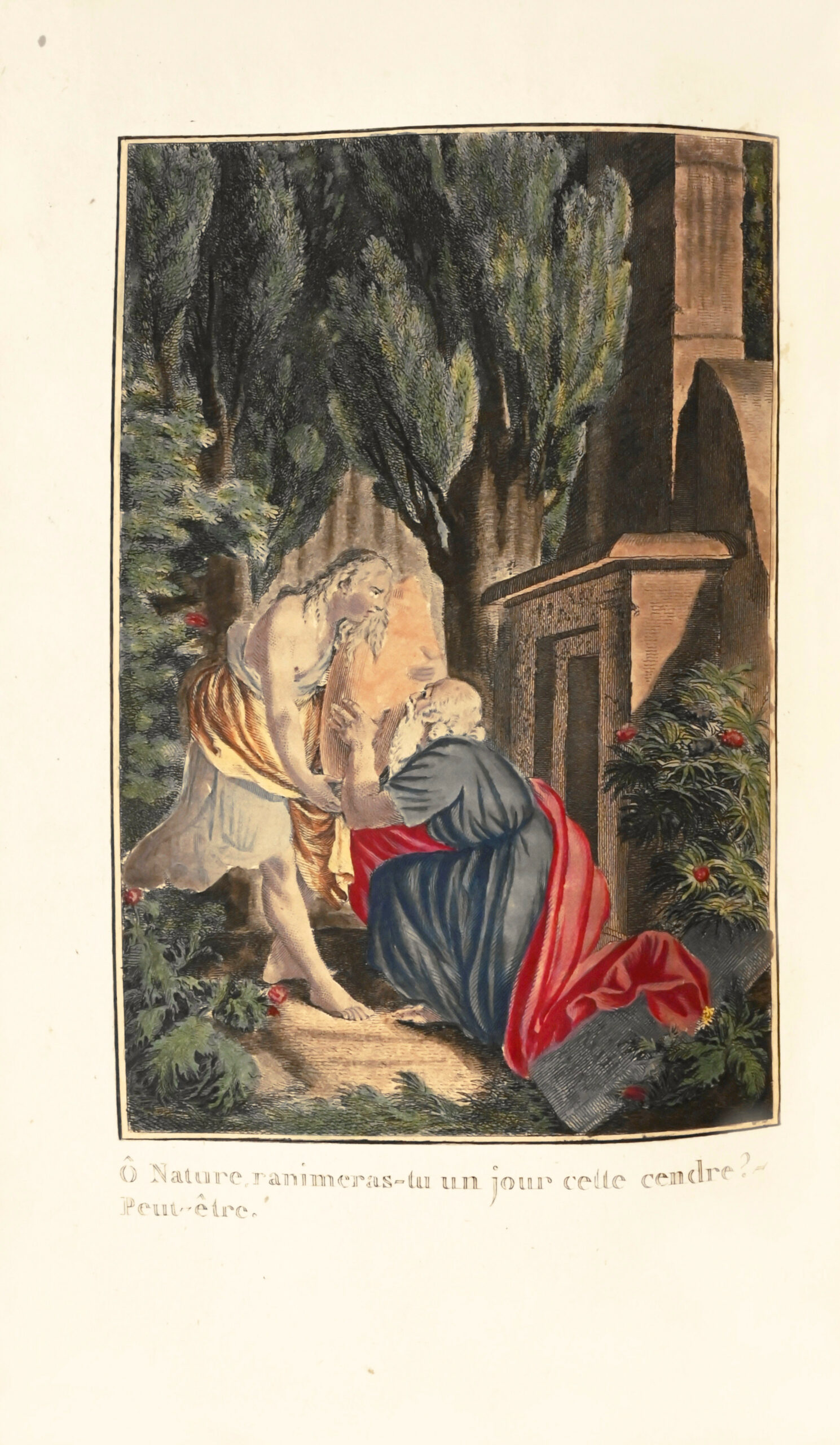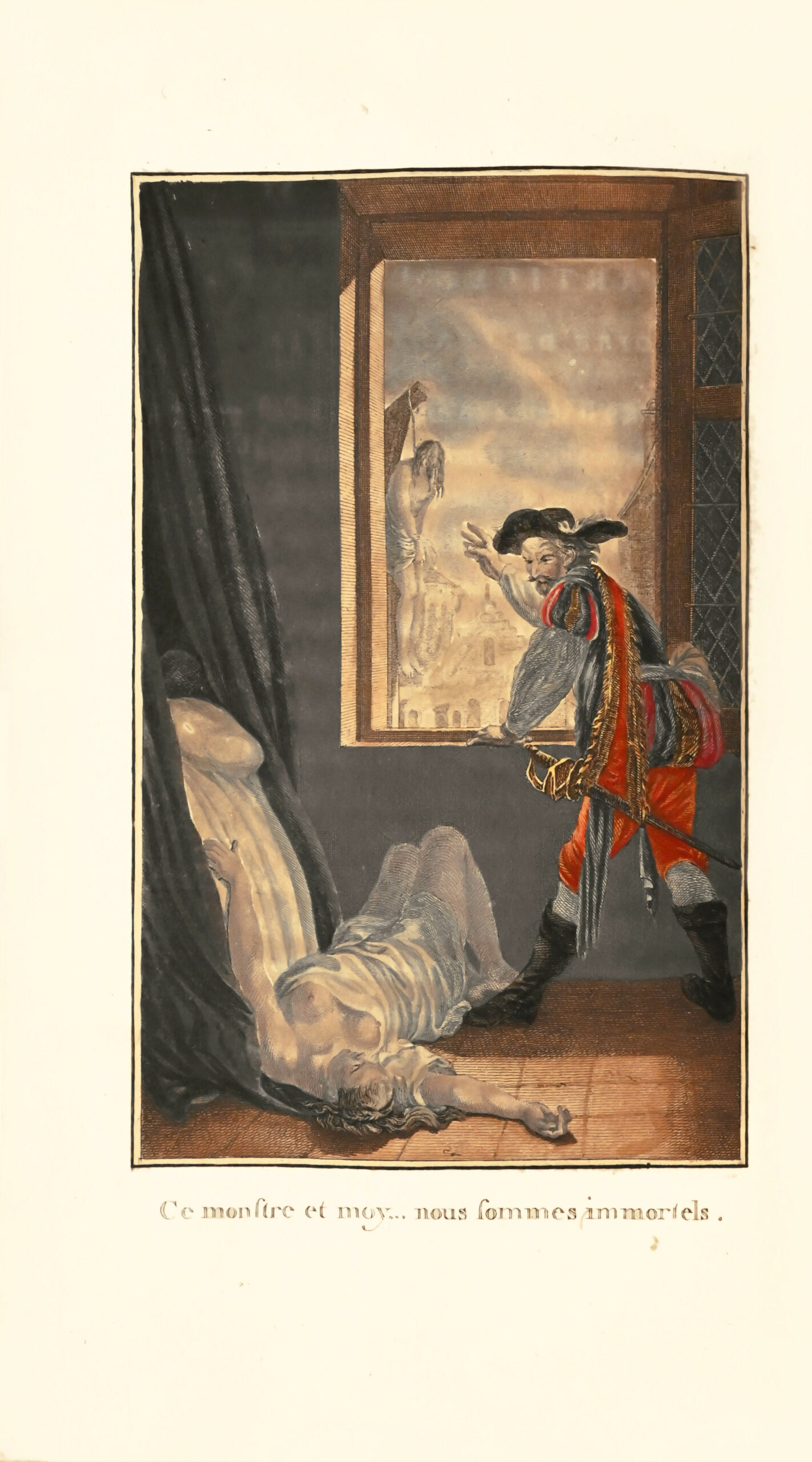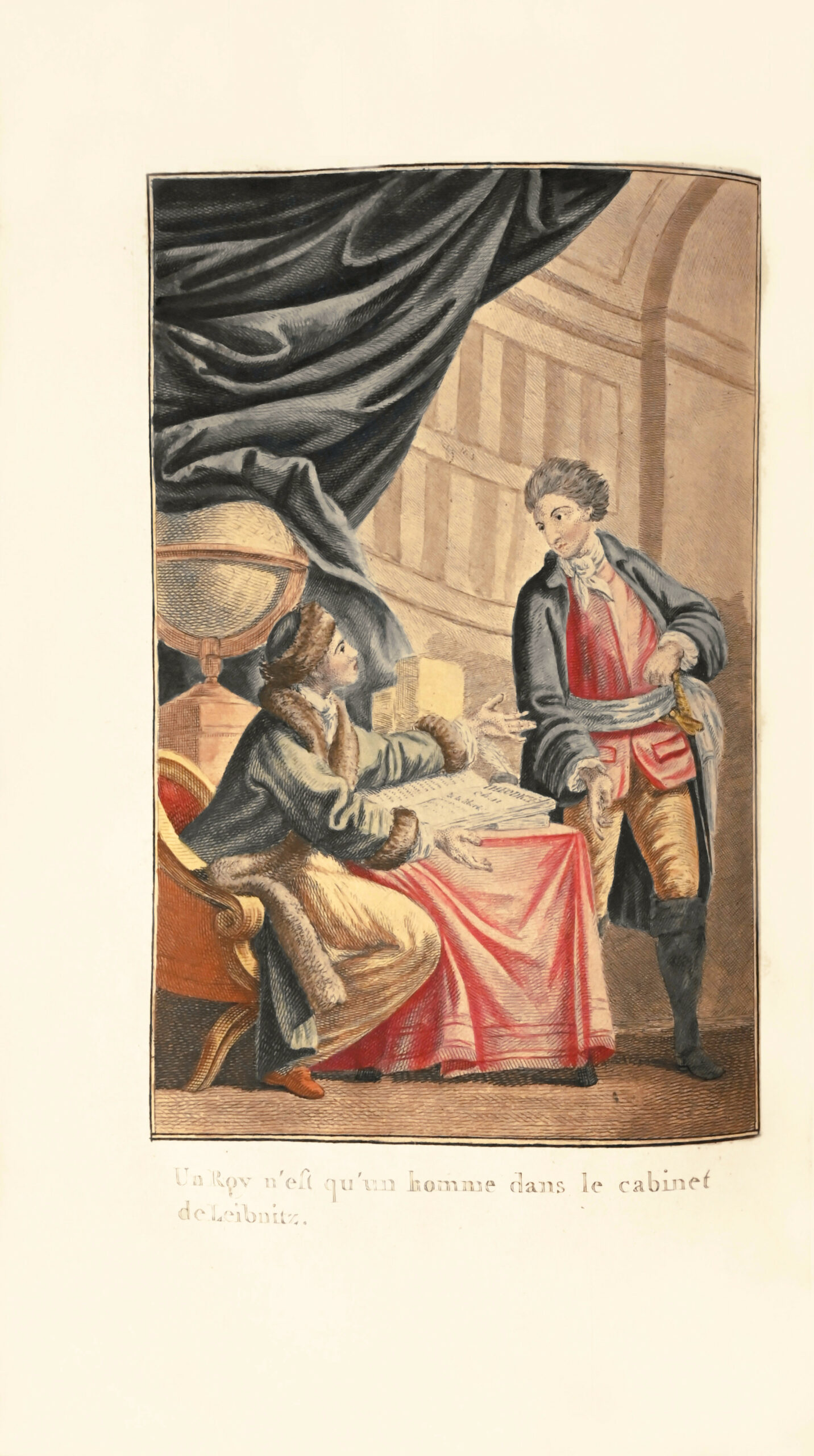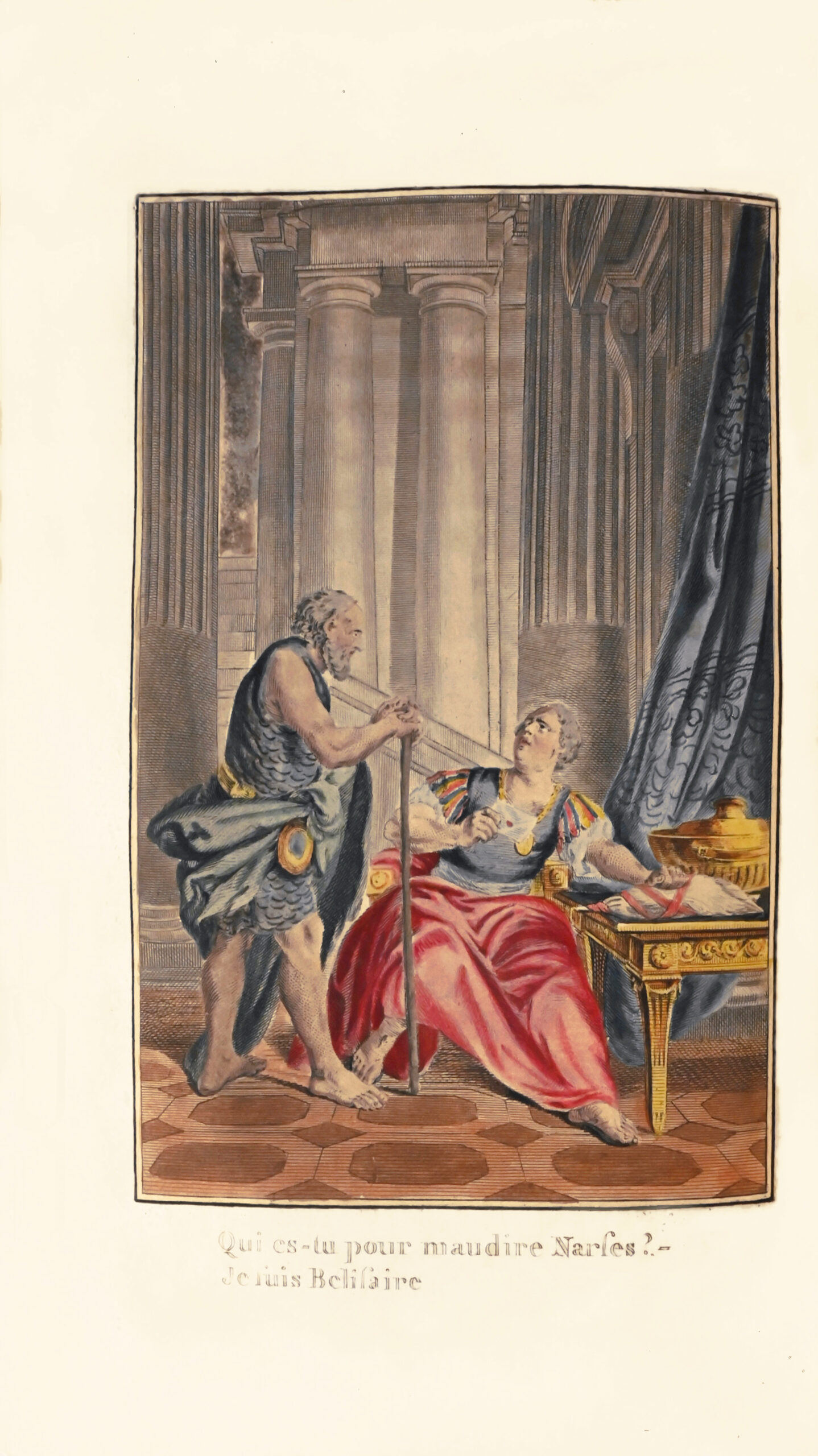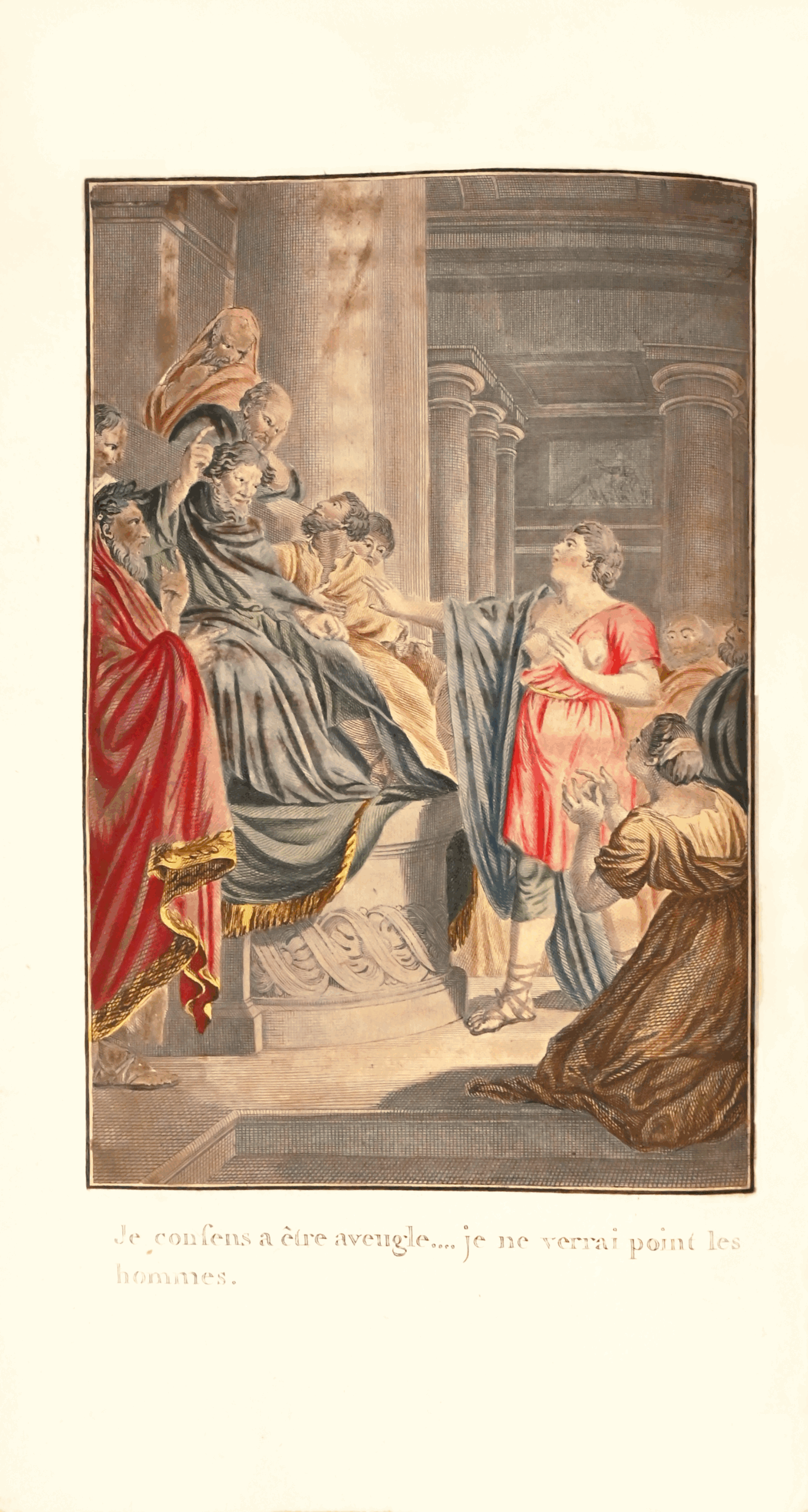London, 1789.
7 volumes 8vo of: I/ (1) title page, 1 frontispiece, 1 portrait of the author, cxcii pp., 256 pp. (bound at the time without quire Q), (2) ll. table of contents, 1 plate; II/ (1) l., 251 pp., 3 pp. of tables, 2 plates outside the text; III/ (1) l., 404 pp., 2 pp. of table, 2 plates outside the text; IV/ (1) l., 437 pp., 3 pp. of table, 3 plates outside the text, pp. 17 to 32 were bound in duplicate at the time; V/ (1) l., 452 pp., 3 pp. of tables, 3 plates outside the text; VI/ (1) l., 419 pp., 3 pp. of tables, 2 pp. of errata; VII/ (1) l., 413 pp., 3 pp. of tables, 1 plate. A total of 12 color engravings, 1 frontispiece, 1 portrait. Full red morocco, gilt friezes around the covers, decorated flat spines, gilt edges. Contemporary morocco binding.
206 x 123 mm.
A high-quality bibliophilic copy printed on large vellum paper, in which the engravings from this 1789 London edition were replaced in 1789 with the original illustrations from the 1777 edition, fully enhanced with color at the time: A portrait by Borel, a frontispiece, 7 title vignettes and 12 inserted plates, by Née and others.
Delisle de Sales was one of those minor writers whom critics rarely mention except when discussing others. Thanks to new studies, we now discover an engaging man who, from the reign of Louis XV to the Restoration, was the voice of his time and threw himself into all ideological controversies without ever being led to renounce his beliefs, despite persecution, imprisonment, and destitution. This Oratorian embraced the Enlightenment and remained faithful to it, even when the Revolution and the Empire rendered his philosophy of nature obsolete, out of step and futile. And it is precisely in this rearguard action, “without weapons and without adversaries,” that Delisle shows the full extent of his lucidity and courage.
These new studies show (with the help of Derrida’s beloved dialectic of “inside” and “outside”) the organic unity of a mind that, in prodigiously diverse forms (Delisle was an editor, preface writer, translator, philosopher, pamphleteer, letter writer, and even author of a bawdy play), follows a stubbornly rigorous line. We now know that Delisle was a polygraph for the love of polyphony.
The overt deism of this work caused a scandal after the publication of the second edition. The Council of the Châtelet condemned the volumes to be burned in 1776, and Delisle de Sales to perpetual banishment and confiscation of his property. The judgment, considered excessive, was nevertheless overturned in 1777, and the author ultimately spent only a few months in prison at the Châtelet, where he was very well housed and received regular visits from the greatest minds of his time.
Peignot, Livres condamnés, I, 96.
Exceptional copy preserved in its contemporary red morocco binding, with all the plates and figures colored at the time of publication.
See less information
